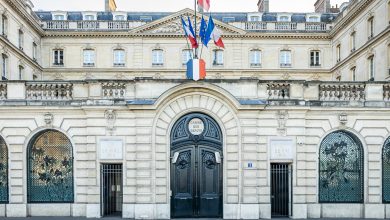Neo-prohibitionist tendencies in the fight against tobacco are a danger to health and public finances, says a new study from the Institut économique Molinari
Media Release
Paris, February 1st, 2012 – On February 5, 2007, the French government imposed a smoking ban in most closed public places (effective for bars, restaurants, etc. on January 1, 2008). The fight against smoking has intensified since then, with the new concept being to “denormalise” the tobacco market, as advanced by Yves Bur, a member of the French National Assembly. Heading a working group on the application in France of the WHO Framework Convention on Tobacco Control, he has pledged to come up with some “very strong proposals” in that regard over the next few days.
Driven by the WHO Convention and by their own anti-tobacco policies, governments have continued to raise taxes and toughen regulations on tobacco. In some countries, this has reached the point where the issue of tobacco prohibition has become more than a passing whim. Legislation to this effect has been brought forward, notably in Finland and Iceland. In Asia, Bhutan has already taken the plunge, totally prohibiting the sale of tobacco in 2004. In France, Jacques Attali, a French economist and public figure, has come down in favour of such prohibition and says this should be a focus of debate in the coming presidential campaign. The Ligue contre le cancer wants France to impose an “exit from tobacco” by 2030.
“With demand ‘refusing’ to disappear, the fight against smoking is moving increasingly toward a logic of de facto prohibition of tobacco,” notes Valentin Petkantchin, the study’s author. “This consists of a gradual – and eventually total – ‘snuffing out’ of the official market in tobacco.”
A “breath of fresh air” for the black market
When the official market is placed “off side”, the black market systematically takes over to meet demand, as has occurred in Bhutan.
This is also the lesson to be drawn from one of the most stringent western experiences in this area, the prohibition of alcohol in the United States between 1920 and 1933. Following an initial decline, consumption soon went back up, becoming five times greater in 1929 than in 1921.
Neo-prohibition of tobacco would be all the more counter-productive in that there already exists a well organised black market in cigarettes:
• illicit traffic estimated at 11% of the worldwide market;
• a shortfall resulting from non-collection of taxes, costing European governments about 10 billion euros a year;
• 20% of purchases conducted outside the official system in France, including 5% from illicit traffic (contraband, counterfeiting and Internet sales).
This illicit market, fed by a crushing tax burden amounting to about 80% of the retail price of cigarettes in France, will replace the legal supply if actions of an ever-more prohibitionist nature taken by public authorities end up making it disappear. This type of situation points to perverse effects both in terms of health and of public finances.
More dangerous consumption
Consumers face a chronic lack of information on the illicit market, along with lower-quality products that are sometimes more dangerous for the health.
• Black-market alcohol sold at the time of the “dry law” in the United States had an alcohol level averaging two-and-a-half times higher and could contain substances that were hazardous for the health, such as industrial alcohol.
• Illegally produced contraband cigarettes currently may have levels of cadmium and lead – metals harmful to the health – that are 6.5 and 13.8 time higher, respectively, than in original brand-name cigarettes.
Policies aimed at penalising purchases on the official market paradoxically push smokers into procuring illegal products that are potentially more harmful to their health, the IEM study notes.
Public finances degraded
On the one hand, neo-prohibitionist policies threaten the entire legal tobacco chain and the tax receipts that governments gain from it. In 2010, this activity represented:
• income of 3.4 billion euros for tobacco producers, for distributors and for France’s 28,000 tobacconists;
• about 13.2 billion euros in value added and excise taxes;
• other receipts involving taxes on business (corporate income tax, etc.).
On the other hand, the neo-prohibition of tobacco requires the deployment of additional police, judicial and other services to fight illegal traffic. These are resources that become unavailable to protect the public against real violence. The public as a whole also risks suffering from a rise in organised crime with the accompanying violence and corruption.
The IEM study concludes that, in this neo-prohibitionist logic, the fight against tobacco risks getting bogged down and becoming an endless struggle against tobacco trafficking. The pernicious effects of any new proposal aimed at the “denormalisation” of legal tobacco supply should no longer be ignored.
Titled What if tobacco were simply prohibited?, the study is available at on our website.
* * *
The Institut économique Molinari (IEM) is an independent, non-profit research and educational organization. Its mission is to promote an economic approach to the study of public policy issues by offering innovative solutions that foster prosperity for all.
– 30 –
Information and interview requests:
Cécile Philippe, PhD
Director, Institut économique Molinari
cecile@institutmolinari.org
+33 6 78 86 98 58



